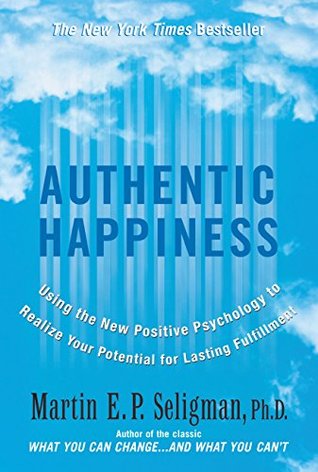More on this book
Community
Kindle Notes & Highlights
one portrait of a momentary positive emotion convincingly predicts longevity and marital satisfaction. The first part of this book is about these momentary positive emotions: joy, flow, glee, pleasure, contentment, serenity, hope, and ecstasy. In particular, I will focus on three questions:
• Why has evolution endowed us with positive feeling? What are the functions and consequences of these emotions, beyond making us feel good? • Who has positive emotion in abundance, and who does not? What enables these emotions, and what disables them? • How can you build more and lasting positive emotion into your life?
A hedonist wants as many good moments and as few bad moments as possible in his life, and simple hedonic theory says that the quality of his life is just the quantity of good moments minus the quantity of bad moments. This is more than an ivory-tower theory, since very many people run their lives based on exactly this goal. But it is a delusion, I believe, because the sum total of our momentary feelings turns out to be a very flawed measure of how
good or how bad we judge an episode—a movie, a vacation, a marriage, or an entire life—to be.
In your own life, you should take particular care with endings, for their color will forever tinge your memory of the entire relationship and your willingness to reenter it.
So Positive Psychology is about the meaning of those happy and unhappy moments, the tapestry they weave, and the strengths and virtues they display that make up the quality of your life. Ludwig Wittgenstein, the great Anglo-Viennese philosopher, was by all accounts miserable. I am a collector of Wittgensteinobilia, but I
have never seen a photo of him smiling (Duchenne or otherwise). Wittgenstein was melancholy, irascible, scathingly critical of everyone around him, and even more critical of himself. In a typical seminar held in his cold and barely furnished Cambridge rooms, he would pace the floor, muttering audibly, “Wittgenstein, Wittgenstein, what a terrible teacher you are.” Yet his last words give the lie to happiolo...
This highlight has been truncated due to consecutive passage length restrictions.
The positive feeling that arises from the exercise of strengths and virtues, rather than from the shortcuts, is authentic. I found out about the value of this authenticity by giving courses in Positive Psychology for
the last three years at the University of Pennsylvania. (These have been much more fun than the abnormal psychology courses I taught for the twenty years prior.)
Haidt collects stories of the emotional reactions to experiencing the better side of humanity, to seeing another person do something extraordinarily positive. An eighteen-year-old freshman at the University of Virginia relates a typical story of elevation:
Kindness is not accompanied by a separable stream of positive emotion like joy; rather, it consists in total engagement and in the loss of self-consciousness.


